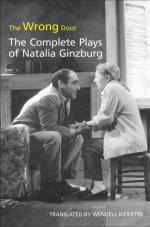|
This section contains 8,510 words (approx. 29 pages at 300 words per page) |

|
SOURCE: Woolf, Judith. “Silent Witness: Memory and Omission in Natalia Ginzburg's Family Sayings.” Cambridge Quarterly 25, no. 3 (1996): 243-62.
In the following essay, Woolf elucidates the role of silence and omission in Family Sayings.
I have written only what I remember, so if this book is read as a chronicle it could be objected that it is full of gaps. Even though I am dealing with real life, I think it ought to be read as a novel; in other words, without asking either more or less of it than a novel can give.1
Natalia Ginzburg belonged to that remarkable generation of women writers whose talents were shaped by a late nineteenth or early twentieth-century childhood. That shaping often involved strains and repressions such as Virginia Woolf portrays in To the Lighthouse, and for Ginzburg, growing up in Mussolini's Italy, it also involved an exposure to violently conflicting political ideologies...
|
This section contains 8,510 words (approx. 29 pages at 300 words per page) |

|


